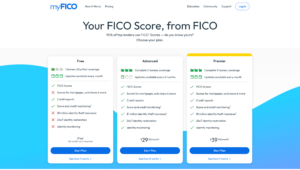 Question: I sent in a request for debt validation to Harold Scherr Law Firm who represents CACH, LLC. They are collecting on an MBNA card.
Question: I sent in a request for debt validation to Harold Scherr Law Firm who represents CACH, LLC. They are collecting on an MBNA card.
They called me about 90 days after I sent the letter seeking payment. They said it was an error by the secretary that it didnt get sent. They tried to get me to settle over the phone.
I insisted they send validation. Now…what they sent me is confusing. The cover letter is demanding 38k while the amount on the “Account Balance on Placement Date” is 37K.
Their “proof” is about 5 months worth of statements, none of which reflect the amount they are demanding. At the very back there is an Exhibit C BILL OF SALE AND ASSIGNMENT OF LOANS sheet (A really poor copy).
There is no reference to my specific account number nor is there an itemized breakdown of added fees and interest. They have nothing with my signature (I originally opened the card back in 1996…not even sure if its originally an MBNA card) Does what they send me satisfy validation standards? Thank you
Answer: The Fair Debt Collection Practices Act does not succinctly spell out what clarifies debt validation. Ideally, when a debt collector provides debt validation, the documents provided should be reviewed and analyzed and if the documents satisfy the debt belongs to you and the amount owed is correct, then you may want to attempt settlement.
Practically, a more prudent way of viewing debt validation documents, is whether or not the documents would satisfy sufficient proof in a court of law; and, the answer may be no.
I am not an attorney and do not offer legal advice but I can speak on experience.
Most debt collectors, when forced to prove you owe them, fall short in convincing a court that: (a) A debtor owes the amount they are requesting; (b) Account statements are sufficient proof of the existence of an original signed contract; and (c) The debt collector has a right to collect the debt.
That is why when a debt collector files a lawsuit against a debtor they are hoping for a default judgment as most debtors ignore lawsuits and do not file an answer. If debtors only fought back by filing a response and showing up for court dates, they have a good chance of winning.
It is really up to you to decide if what has been provided is enough for you to agree to payment but here are my thoughts:
(1) Bill of Sale. The document provided only proves a sale has taken place between original creditor and debt buyer. In my opinion, it does not prove your account was included in that sale; and, more importantly, it does not prove an account included in the sale belonged to you. It also does not prove the debt buyer has a right to collect the debt and I am almost certain it does not show how much the debt collector actually paid for the debt.
(2) Account Statements. Older account statements are insufficient to prove the amount they are requesting. In a court of law, those statements would have to be submitted with some type of declaration, under penalty of perjury, from the original creditor, that it is a “true and correct” copy of the actual original account statements.
I suggest you to read “What constitutes debt validation.” It may give you a better idea on how to approach the matter. Also, I strongly urge you to “Google” the “Harold Scherr Law Firm” if you have not already done so.
Undoubtedly you will discover other consumers who have encountered this debt collection law firm which can give you valuable insight and tips on how to proceed, for instance:
- Whether or not they routinely file lawsuits against debtors;
- Do they prevail on lawsuits where consumers fight back or do they “not even show up in court” which is not uncommon for many of debt collection law firms;
- Do they file lawsuits on debts when the statute of limitations has expired? If so, simply answering the lawsuit and using the expired statute of limitations as an affirmative defense can get the lawsuit dismissed; and
- Are they willing to settle the debt for pennies on the dollars? If so, that probably means they do not have sufficient proof to back up the debt.
I can only give you my thoughts. How you proceed is solely up to you because the FDCPA does not have hard and fast rules on what constitutes debt validation. Good luck to you.





















